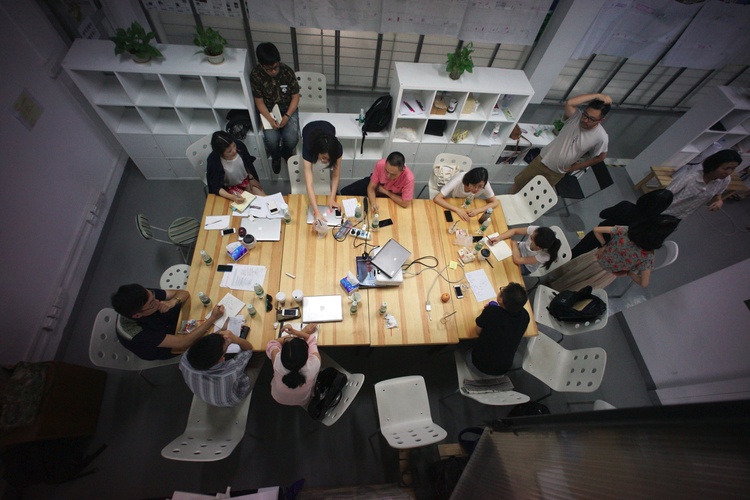MEDIA ADVISORY
September 19, 2016
Pop-Up Studio-X at Baitasi Remade:
Beijing Design Week 2016
How can we effectively mobilize traceable data technologies to expand the horizons of bottom-up social development? How can data actually be leveraged in practice to foster greater social and economic inclusivity and new systems of transparency? With an eye on these pivotal questions, Pop-Up Studio-X Baitasi explores the emerging field of data for good during Beijing Design Week 2016 through an exhibition, mini-symposium, and multidisciplinary workshop with experts from the social sciences, data science, and urbanism.
During this 10-day workshop, GSAPP alumnus Tat Lam, along with anthropologist Victoria Nguyen and SANS (三思), will curate a series of exhibitions, workshops, and discussions to explore strategies of data empowerment. By investigating data literacy, culturally sensitive technologies, and human-centric data infrastructure in Beijing’s hutong districts, the workshop aims to develop prototypes and processes in the service of empowering grassroots communities in Beijing and beyond.
Pop-up Studio X Baitasi is part of an ongoing research series by Columbia University’s Graduate School of Architecture, Planning, and Preservation (GSAPP) and is a continuation of its last two events in China, including ‘Dashilar: Housing In-between Symposium and exhibition’ (2015 Beijing Design Week, Dashilar Design Community) and ‘Housing for the Majority Workshop’ (2016 Future +, Shenzhen), which explored new solutions to improve quality of life for grassroots communities in Chinese cities.
Curator: Tat Lam, Ph.D., CEO Shanzhai City
Team: Victoria Nguyen, Sirui Zhang, Qianni Wang, Ren Jue Ph.D., Linda Lim Ph.D., Youyang Ho, Terrence Lam, Neill Mclean Gaddes, Yijing Xu
Partners: Shanzhai City, SANS (三思)



